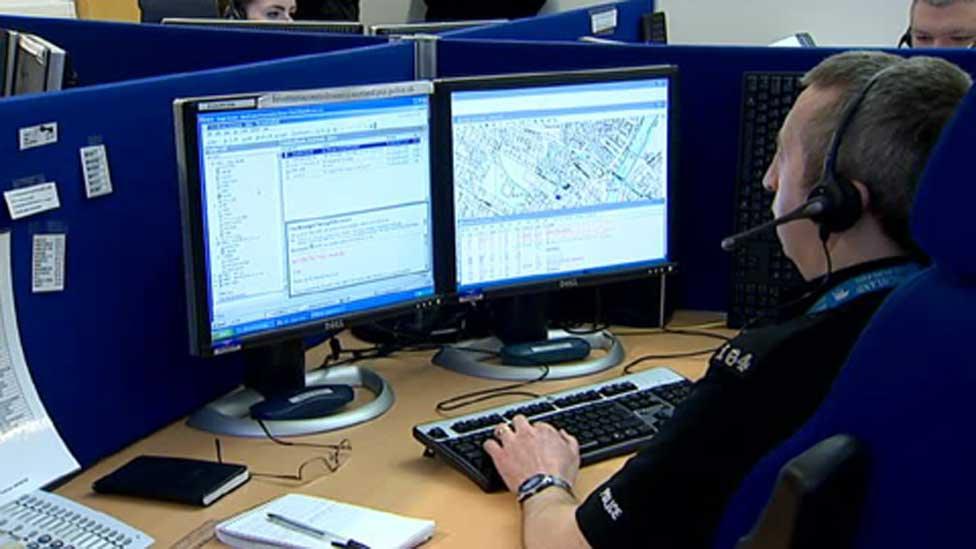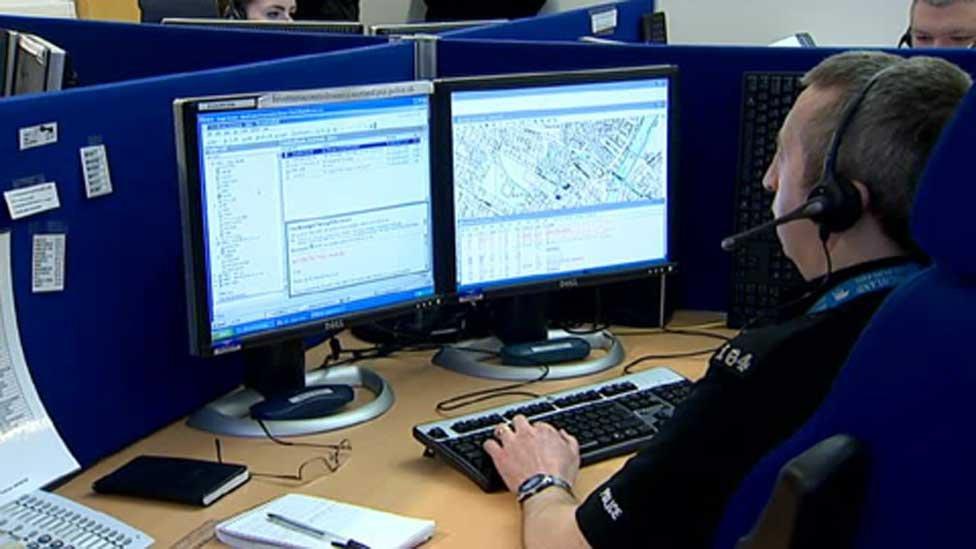Police Scotland warns of delays to 101 calls due to Omicron
- Published

Police Scotland have warned the public to expect longer waiting times for 101 non-emergency calls due to the surge in Omicron cases.
The force said it is dealing with a "high number" of absences due to illness and self-isolation.
But it emphasised 999 calls would be prioritised at all times.
Household contacts of confirmed Covid cases have to go into self-isolation for 10 days, regardless of their age or vaccination status.
In June more than 40% of non-emergency calls to police were abandoned by the caller as they took an average of five minutes to answer.
Assistant Chief Constable Alan Speirs said: "The new Omicron Covid variant is having a significant effect on the country and Police Scotland is included in that.
"We, like any other organisation, are dealing with a large number of absences due to the high transmissibility of Omicron, however, I would like to reassure people that the 999 and 101 service is here and is ready to assist as we face this new challenge in the pandemic."
Mr Speirs said the force is taking "all steps necessary" to protect its critical services and maintain staffing levels throughout its contact centres.
But he added: "We also need to make people aware that the serious effects of Omicron is likely to impact our non-emergency 101 service.
"This means there will be longer waiting times for those calls to be answered.
"The 999 number is for emergencies only and should be used to call for urgent police assistance when there is an immediate danger to life or safety, or if a serious crime is happening right now."
The assistant chief constable said non-urgent issues can be reported online via the Police Scotland website, external.


Related topics
- Published25 August 2021
